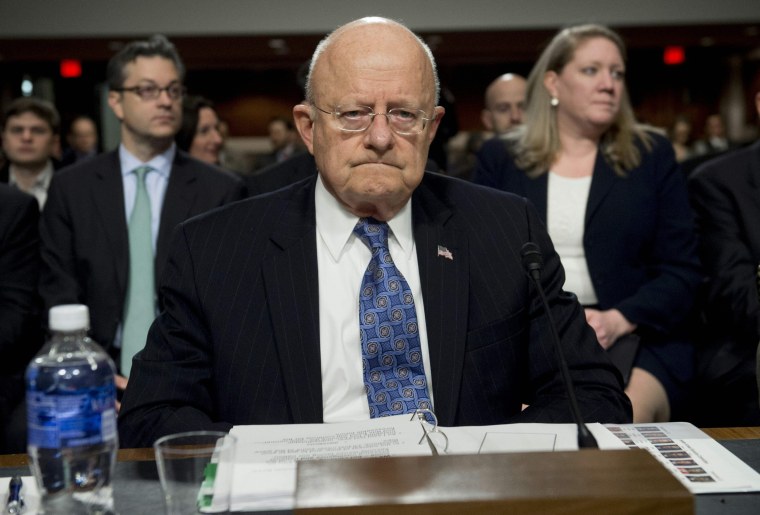North Korea, which in recent weeks has conducted a nuclear test and fired a long-range rocket in defiance of United Nations sanctions, has also resumed its efforts to produce weapons-grade nuclear material, National Intelligence Director James Clapper told Congress Tuesday.
A North Korean uranium enrichment facility has been expanded, and a plutonium reactor, closed in 2007, is back up and running, Clapper testified to the Senate Armed Services Committee. The reactor could begin to recover plutonium "within a matter of weeks to months," he said.
The dictatorship's growing menace also includes a growth in the "size and sophistication of its ballistic missile forces," and a commitment "to developing a long-range, nuclear-armed missile that is capable of posing a direct threat to the United States," Clapper said.
Delivering his annual assessment of worldwide threats — or, as he described it, a "litany of doom" — Clapper also said ISIS has outgrown Al Qaeda to become "the preeminent global terrorist threat." He also named Iran as the "foremost state sponsor of terrorism."
The wave of migration out of Syria and elsewhere in the Middle East and Africa are a worrisome potential source of terror attacks, Clapper warned.

He also said the group's use of sophisticated encryption technology have had a "negative impact on intelligence gathering."
Clapper included in his assessment the sharp increase of heroin overdoses in America in recent years, noting that seizures of heroin at the Mexican border has doubled since 2010. He recommended a more aggressive interdiction effort.
Turning to cyber warfare, Clapper said America's biggest threats were from Russia, China, Iran and North Korea.
